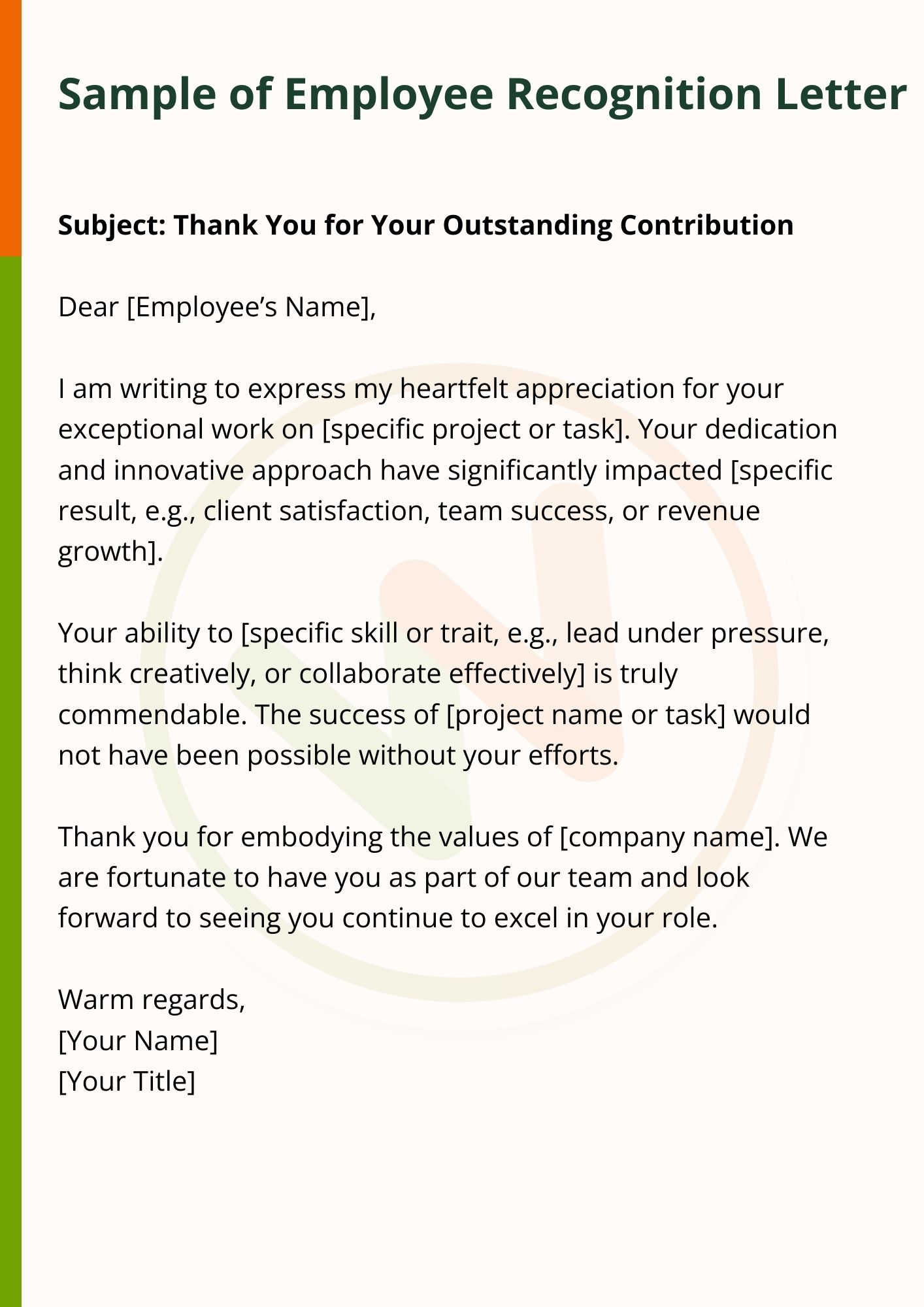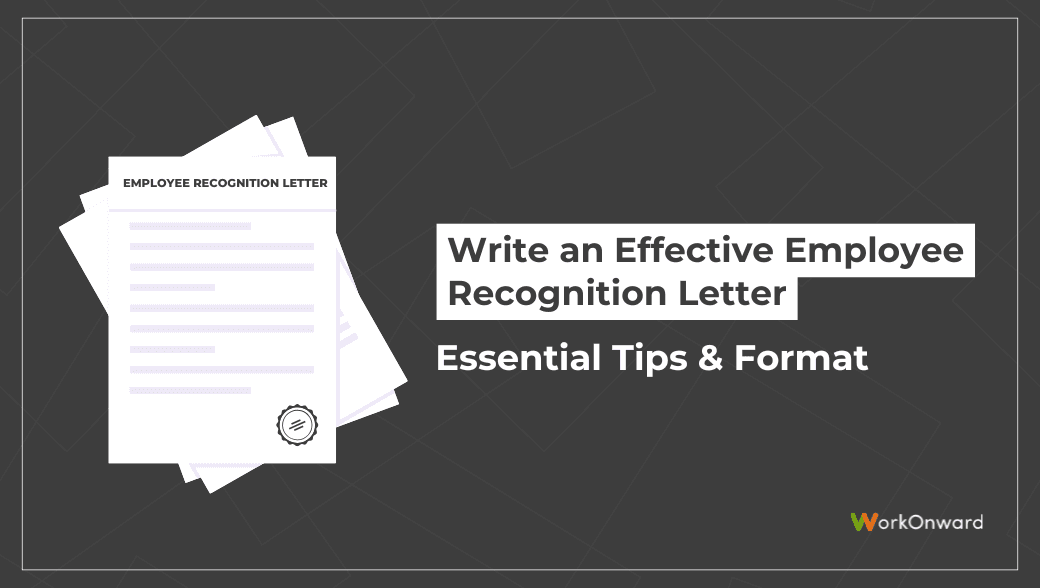Recognizing employees for their contributions is a cornerstone of fostering workplace morale and productivity. One of the simplest yet most effective ways to do this is through a thoughtful employee recognition letter. Here's how to write one that truly makes an impact.
The Importance of Employee Recognition
Employees are the backbone of any organization. A well-timed recognition letter can:
Boost Morale: Acknowledgment of hard work uplifts spirits.
Encourage Retention: Employees feel valued and are less likely to leave.
Promote Productivity: Recognition often inspires others to excel.
Foster Loyalty: A personal touch strengthens organizational bonds.
Enhance Workplace Culture: Recognition creates a culture of appreciation.
What Makes a Recognition Letter Effective?
To leave a lasting impression, a recognition letter should:
Be specific: Highlight exact achievements.
Be personalized: Tailor it to the individual’s contributions.
Be timely: Send it as soon as possible after the achievement.
Be sincere: Authenticity makes the gesture meaningful.
Be professional yet warm: Balance formal tone with genuine appreciation.
Key Elements of an Employee Recognition Letter
Personal Greeting: Use the employee’s name for a personal touch.
Reason for the Letter: Clearly state why the letter is being written.
Specific Achievements: Detail what the employee did and the impact of their work.
Acknowledgment of Qualities: Highlight traits like leadership, teamwork, or creativity.
Closing Encouragement: End on a note of continued confidence in their abilities.
Sample of Employee Recognition Letter

Examples of Scenarios for Recognition
1. Exceeding Performance Goals
“Your outstanding performance in exceeding the sales target by 25% this quarter is a testament to your hard work and dedication.”
2. Exceptional Teamwork
“Your ability to bring the team together and navigate challenges during [specific project] is truly admirable.”
3. Exemplary Leadership
“Your leadership in guiding the team through [challenge] has set a benchmark for excellence.”
4. Innovative Solutions
“Your creative solution to [problem] has revolutionized our process and saved countless hours.”
5. Commitment to Company Values
“Your consistent demonstration of integrity and professionalism has earned the respect of colleagues and clients alike.”
How Recognition Impacts Employee Engagement
Research shows that recognition is a powerful motivator. A Gallup survey reveals:
69% of employees say they would work harder if they felt appreciated.
Companies with a recognition-rich culture have 31% lower turnover rates.
Incorporating Technology in Recognition
Platforms like [Tool Name] or [Tool Name] make it easier to track achievements and automate letters, ensuring no effort goes unnoticed.
Benefits of Using Recognition Software:
Consistency across the organization.
Personalized templates for faster delivery.
Data analytics to identify top performers.
Dos and Don’ts of Writing Recognition Letters
Dos:
Keep it concise and impactful.
Use positive language throughout.
Mention the broader impact of the employee’s efforts.
Don’ts:
Avoid generic statements like “Good job.”
Don’t delay the letter—it loses impact over time.
Avoid overloading with technical jargon or excessive details.
Closing Thoughts
An employee recognition letter is more than just words—it’s a celebration of effort and a reinforcement of the values that drive organizational success. When crafted with sincerity, it can inspire, motivate, and strengthen bonds, leaving a lasting imprint on both the employee and the organization.
Take a moment today to recognize someone who makes a difference. After all, a little appreciation goes a long way in building a thriving workplace culture.







